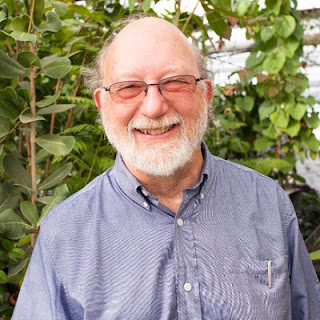Russian composer Alexander Mosolov in 1927. Unless you are probably a pretty serious Russian classical music fan, you probably don't know the name. He was never a "dissident" but spent time in the Gulag, anyway.
One of the interests I share in common with Robert Anton Wilson is a love and strong interest in classical music; he often talked about Beethoven or Mozart or Bach, or classical music in general.
In "Credo" in the book Right Where You Are Sitting Now, RAW wrote about some of his favorite composers, "I believe in Bach, the creator of heaven and Earth, and in Mozart, his only begotten son, and in Beethoven the mediator and comforter; and inasmuch as their gods have manifested also in Vivaldi and Ravel and Stravinsky and many another, I believe in the communion of saints, the forgiveness of error, and Mind everlasting."
Elsewhere, RAW summarizes his favorite music as "Beethoven's Ninth and his late quartets, Bach, Bizet, Carl Orff, Vivaldi, the less popular and more experimental stuff by Stravinsky."
This obviously is not the whole story; I got interested in the Baroque composer Jan Dismas Zelenka via the Schroedinger's Cat trilogy. There has been a revival of interest in Zelenka's music, and RAW contributed to that.
A couple of observations about RAWs musical taste: I like the composers he likes and I spend many hours listening to Bach, Beethoven and Mozart.
I notice little interest in modern composers. I can't remember any mention in RAW's writings of modernists such as Webern or Elliott Carter, or minimalists such as Steve Reich and Philip Glass, or offbeat Americans such as Morton Feldman or Lou Harrison. (Harrison lived much of his life in Santa Cruz County, not far from RAW. Maybe they somehow crossed paths in an unrecorded way?) RAW did know about John Cage, an exception to the general rule. Nevertheless, Stravinsky and Ravel are about as "far out" as RAW ever got in classical music, although he did listen to jazz.
The other thing I notice is that RAW doesn't mention many Russians ... no mention of Tchaikovsky, Shostakovich, Prokofiev, or any other Russians except for Stravinsky.
The argument of my music blog, Russian Futurism, is twofold. One is that Russian composers dominated classical music in the 20th century in a way that's analogous to the way German-speaking composers dominated in the 18th and 19th centuries. When you get past the few composers everyone knows, such as Prokofiev, Shostakovich and Stravinsky, there are endless riches: Myaskovsky, Medtner, Edison Denisov, Khachaturian, Popov, Mosolov and many others.
More specifically, I argue that the Russian avante-garde classical music movement of 1915-1935 or so, essentially destroyed by Stalin, is a "lost" musical wave that deserves more attention.
By "musical wave," I mean any important musical movement that left its mark on the world .... the British Invasion of 1960s rock bands, bebop jazz after World War II, the punk explosion of the late 1970s, the Seattle "grunge" movement of the 1980s and 1990s.
It is my contention that the Russian classical music avant-garde of the period I reference, the composers who were members of the Association of Contemporary Music (1923-1931) and their emigre, Russian-speaking counterparts such as Leo Ornstein, are essentially a lost wave, in the sense that most serious music listeners are not aware of what I am talking about. While they are likely to be familiar with a few composers associated with the movement, most likely Shostakovich and fellow-traveler Prokofiev (still living abroad at the time), they won't know many other talented composers whose careers were suppressed by Stalin's regime, such as Gavriil Popov and Alexander Mosolov. (Shostakovich and Prokofiev obviously survived Stalinist persecution, but some of their works were banned. The most obvious example is my favorite Shostakovich symphony, the Fourth, completed in 1936 but not performed until 1961).
It's the intent of Russian Futurism to help a relatively few number of other writers and musicians who are trying to bring these composers back into the spotlight, much as RAW did his bit to give Zelenka a signal boost. RAW always liked classical music and stood for individual freedom and freedom of artistic expression, so my music blog aligns with my RAW blog, even if I'm writing about music that RAW did not focus a lot of attention upon.
See also my Russian Futurism FAQ, a work in progress.





























